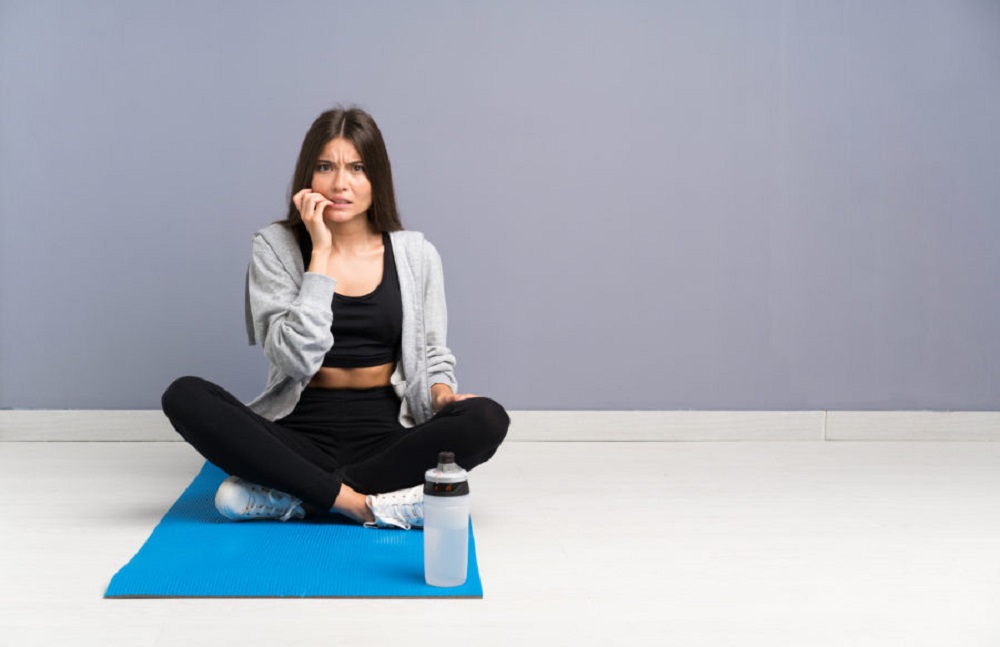Overcoming Gym Anxiety: How to Feel Confident and Comfortable While Working Out
Learn how to conquer gym anxiety, boost your confidence, and make your workout sessions stress-free with these practical tips.

Watan-Many people looking to improve their physical fitness and lose some weight turn to gym memberships, hoping to overcome laziness and procrastination and finally start exercising.
However, some may feel terrified as their workout session approaches—not out of fear of the equipment or heavy weights, but due to what is known as “gym anxiety,” which is influenced by several complex psychological factors.
What is Gym Anxiety?
Gym anxiety typically stems from several concerns, such as fear of crowded workout spaces, worries about hygiene, frustration over someone else occupying the machines you want to use, or even discomfort in locker rooms among strangers. If you’ve felt this way, know that you’re not alone.
Feeling anxious about going to the gym is common, especially when starting at a new facility or for beginners. If you’re a student, you might also experience anxiety about gym classes or fitness sessions at school.
For many, navigating unfamiliar gym equipment and the fear of being watched or judged can trigger anxiety, making the idea of going to the gym seem overwhelming and panic-inducing.
Fear of Being Judged by Others
Studies on gym anxiety suggest that nearly 2 in 5 adults in the UK avoid going to the gym because they feel self-conscious about how they look. More than 1 in 4 people worry that others will judge their fitness level—figures believed to be similar worldwide.
This embarrassment can create a vicious cycle, where the desire to improve fitness clashes with the fear of being judged by others. The issue may worsen when surrounded by more experienced or physically fit individuals.
This internal struggle often leads to hesitation and excuses, resulting in avoiding the gym altogether and suffering mentally and emotionally due to these feelings.
Whether you are a beginner or an experienced gym-goer, gym anxiety can affect anyone. Many people cite their fear of exercising in front of others as a key reason for not going to the gym.

Discomfort Around Others
People with social anxiety disorder may be more susceptible to gym anxiety, as this condition involves excessive and irrational fears of being watched, judged, or embarrassed.
One study found that although many women understand the benefits of resistance training, they avoid it because they believe others will be looking at them. Other reasons people fear exercising in front of others include:
- Feeling unable to keep up with others in group workouts.
- General discomfort in gym environments.
- Not knowing how to use the equipment or what exercises to do.
- Concerns about body image and not looking fit.
- Anxiety about sweating in front of others.
Certain areas of the gym can also feel intimidating. One study found that women seeking to improve their fitness tend to avoid male-dominated areas, such as the weightlifting section.
Tips to Overcome Gym Anxiety
Several strategies can help you manage gym anxiety, allowing you to have a great workout without experiencing overwhelming stress or emotional distress:
- Educate Yourself: A significant part of anxiety comes from fear of the unknown. Learning as much as possible beforehand can boost your confidence. Start by researching online, take a virtual tour of the facility, visit the gym in person, familiarize yourself with the layout and staff, and if possible, introduce yourself and build connections.
- Start Slow: You don’t need to push yourself to the limit during your first visits. Set a small, comfortable goal—spend 10-15 minutes on the treadmill or do a few simple stretching exercises.
- Work with a Trainer: Even a single session with a personal trainer can help you learn the right exercises, how to use the equipment, and how to structure your workouts. After following this routine for a month or two, consider scheduling another session to take your fitness plan to the next level.
- Bring a Friend: Going to the gym with a friend or family member can provide comfort, support, and even guidance if they have experience. Once you gain confidence, you can start working out solo.

- Try Group Classes: If you have social anxiety, group fitness classes may not seem like the best option. However, they can sometimes ease gym anxiety by eliminating the uncertainty of what to do—just follow the instructor and fellow participants.
- Plan Your Workouts: Having a clear workout plan not only helps with time management and efficiency but also reduces fear of the unknown. If you know exactly which exercises to do and in what order, you can stay focused without stress or confusion. Additionally, if locker rooms make you anxious, consider arriving in your workout attire and showering at home afterward.
In general, the more frequently you visit the gym, the more confident and comfortable you will become. Over time, exercise will work its magic in improving both your physical and mental health.





